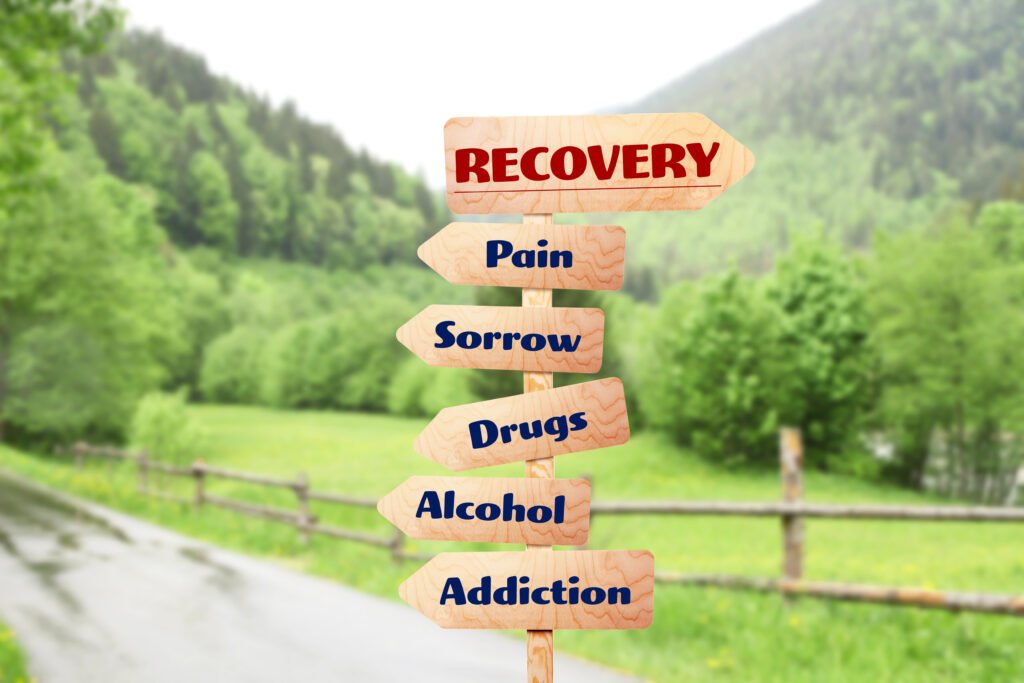
Getting through drug addiction can be difficult. Aside from requiring one’s time and effort, this stage could also be time-consuming. But, if you think that your journey ends after undergoing recovery processes, you might be in for a big surprise or a problem.
Addiction patients tend to encounter many obstacles during the rehabilitation stage. If you or you know someone who has to undergo addiction treatment and is hesitant about it, you can help them by learning the challenges they might encounter. Through that, you can guide them with the proper measures to take.
Seeking professional help from facilities and rehabilitation centers could also help. You can also click here for better ideas about coping with addiction more quickly.
Lastly, reading this article may help enrich your knowledge about how to address such challenges.
Coping With Challenges During Addiction Treatment
For starters, drug addiction treatment and recovery processes may not be as easy. These stages often come with many challenges that can affect one’s recovery. Mainly, people may experience difficulty re-entering society, accomplishing rehab programs, and maintaining sobriety.
Coping with these difficulties could be challenging but with the proper knowledge and the right people to talk to, you can effectively help someone or yourself get through it. You could also ensure complete success by understanding everyday challenges during drug addiction treatments.
To help you more, listed below are some of the most common challenges during addiction treatment recovery and tips to resolve them.

- Maintaining Sobriety
One of the most common issues addiction patients or alcoholics face during recovery is the difficulty of maintaining their sobriety. As easy as it may seem, getting sober can be difficult, especially if one’s already too dependent on drugs or alcohol.
Alcohol and drugs contain addictive substances that could gradually crawl on one’s system. These substances could cause drastic changes in one’s behavior, thinking patterns, and emotions. Upon stopping alcohol and drug use, a person may experience urges and cravings, resulting in withdrawal symptoms and relapses.
That being said, it’s crucial to learn a thing or two about proper coping strategies to maintain one’s sobriety. It’s to ensure that they won’t return to old habits and succumb to cravings. In rehab, people would learn helpful techniques to handle persistent urges effectively. Health practitioners could also help them make lifestyle changes to sustain full recovery.
Through that, they’d regain normalcy in their lives.
- Conquering Trauma And Guilt
Alcoholism and drug addiction could negatively impact one’s health and overall well-being, especially mental health. First, it’d make people lose their inhibitions and affect their logical thinking, resulting in poor judgments. Apart from that, addiction patients often become the center of ridicule and criticism by the people around them, potentially triggering their conditions.
That’s still not the end of it. People suffering from addiction and alcohol dependence might suffer from intrusive thoughts, clouding their drive to pursue recovery. Due to that, it’d help to learn how to conquer guilt and manage negative thoughts and emotions.
Although it won’t be easy, coping with shame and trauma could significantly improve your mental state and keep you in a good disposition during addiction recovery. Doing it could lessen the risks of unwanted thoughts and urges, prevent relapses, and avoid withdrawal symptoms from occurring.
Working with therapists and counselors could also help you determine the underlying factors that result in your condition and work to address harmful behavior. With their help and assistance, you can free yourself from the dark past and move forward in life.
- Reconnecting With People
As mentioned earlier, people struggling with alcoholism and drug addiction often suffer from harsh criticism and stigma from other people. They’re often outcasted and judged, depriving them of moral support and help. Due to that, these patients often have a hard time reconnecting with their loved ones during addiction recovery. Fear of rejection and self-preservation usually kicks off, making them shun away from other people and refuse help.
To better help someone get through this challenge, it’d help to provide love, support, friendship, and hope that they need. Patients may also need their family member’s backing and acceptance to cope with their condition.
In such aspects, you can slowly work on establishing new relationships with other people while inside the rehab or during addiction treatments. You can reach out to loved ones or open your doors to a support system for more assistance. Through that, you’ll learn how to communicate with others and trust them, freeing you from the impacts of addiction.
Telling a few trusted people your experiences and thoughts could also help you manage them and get through intrusive thoughts.
- Managing Negative Emotions
During addiction treatment, you might suffer from depressive episodes or extreme lows. You may feel sadness and extreme hopelessness, crushing your will to recover. Chances are you’ll encounter withdrawal symptoms and relapses, which could affect your condition. Due to that, attending therapies and counseling sessions could help you learn how to handle negative emotions.
It’s vital to know how to stay on top of presumptuous thoughts and not dwell on them. But that doesn’t mean to invalidate your emotions during this stage. It’s only to help you address and deal with them appropriately. By seeking professional help, they’d help you follow a well-balanced daily schedule consisting of support systems, activities to build self-esteem, personal reflection, and leisure time.
Engaging in outdoor activities or conversing with a support group could also help ease your boredom and keep negative emotions at bay.
You’d also benefit from taking time to meditate, playing sports, or learning new hobbies during addiction treatment. Lastly, enrolling in sober living programs could also complete your recovery processes.
- Preventing Relapses And Withdrawal Symptoms
Aside from managing your thoughts and emotions, the other aspects you need to consider are relapses and withdrawal symptoms. People tend to experience withdrawal symptoms during addiction recovery and treatment upon ceasing to take addictive substances or alcohol. It can affect their normal functioning, behavior, and thought patterns. Patients may also encounter relapses or sudden deterioration after a series of improvements.
In such aspects, it’s crucial to learn how to manage cravings, stress, anxiety, and persistent urges to avoid succumbing to your old habits. It might threaten your newly-found normalcy in life and sobriety without getting addressed. Fortunately, psychologists and counselors could help you with it.
Seeking professional help could significantly help you determine factors that trigger your condition, establish life skills, modify unhealthy behavior, and develop strong foundations to prevent relapses. But, if you’re already struggling with relapses, you’d efficiently get back on your feet and manage yourself through these alternatives. Moreover, having a support system doesn’t fall short of helping you get back on track quickly.
- Rediscovering Purposes
After drug addiction treatment, you might have thoughts about what to do with your life. You may have fears about moving forward after getting through this stage and even feel uncertain.
While it’s normal to have fears, dwelling on them may not do any good. Instead, it might only cause you to lose the will to pursue sobriety and recovery. With that, it’s best to develop efficient strategies to rediscover your purpose in life. You’ll have to learn how to adapt to a life free from drugs and alcohol and improve your current state.
Be it for your emotional, physical, psychological, and social aspects, you can do plenty of adjustments to re-establish your life’s purposes. These may include learning new skills, rediscovering hobbies, or exploring the things you love. Doing relaxation activities like yoga and meditation could also help.
Apart from that, you can also consider participating in community programs and support groups. By doing that, you can have peace of mind and learn your objectives in life. Another great thing about this is having the chance to help other people get through addiction and become an inspiration to others.
- Transitioning To A Happy, Free Life
It couldn’t be easy to transition from harmful behaviors and addiction dependence to a life free from it. You might feel hesitant to face the world outside rehabilitation centers and the things that come with it. But these things are inevitable, sooner or later, you’ll have to deal with them.
It would help to enroll in transitional living programs to know how to adapt to your new life. Sober living homes and transitional living programs could provide a sense of accountability, structure, peer support, employment, and education assistance to patients. Aside from that, these facilities could offer a sense of camaraderie to patients that’d help them flourish in their new lifestyle.
Notably, signing up for these transitional programs could significantly help you prepare yourself for the kind of life you’ll have outside the safety of rehab centers. Through these programs, you can also learn how to manage responsibilities, find a job, and fulfill financial obligations. Lastly, you’ll get to put your coping strategies into action and achieve a happy, meaningful life.
Final Thoughts
Addiction recovery isn’t just a walk-in-the-park experience for many people. This stage often comes with many challenges that could make people lose hope and feel like giving up. But that shouldn’t prevent you from helping yourself to get the life you once had. Knowing the challenges and obstacles you might face along the way could help you recover from them faster.
Aside from that, you can seek help from facilities and centers that offer services for addiction patients. You should also consider some of the tips listed above because it might also help you recover faster. Lastly, having the right people beside you and believing in yourself could make all the difference during this stage.



